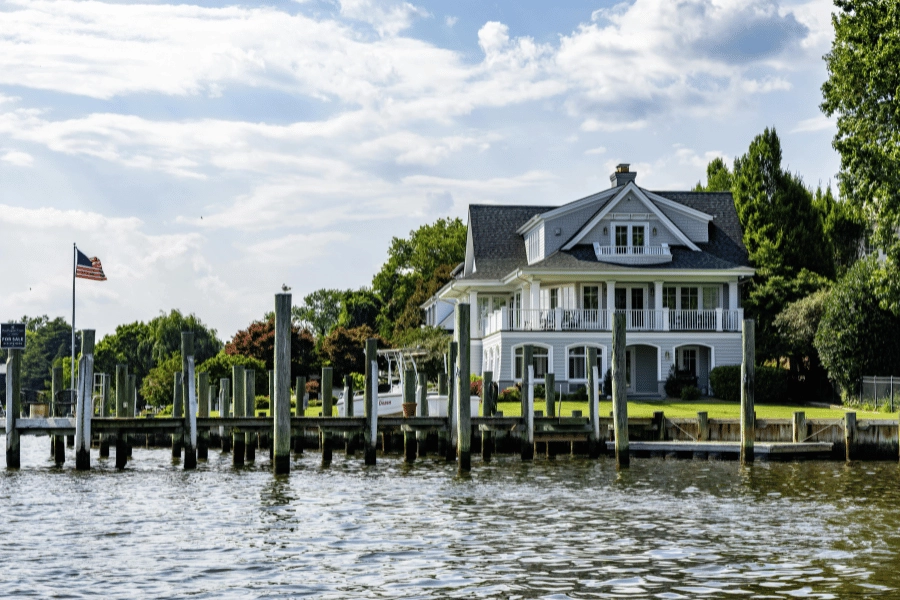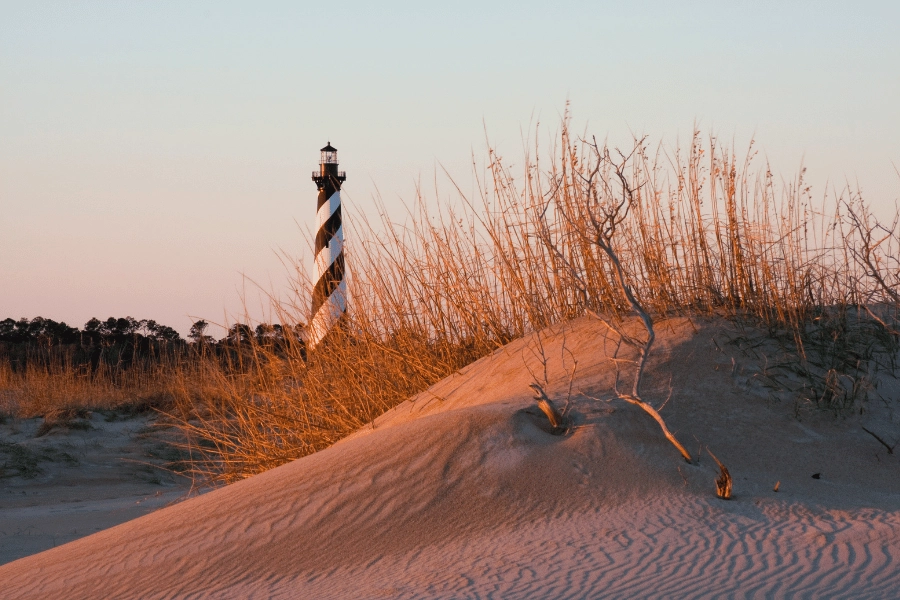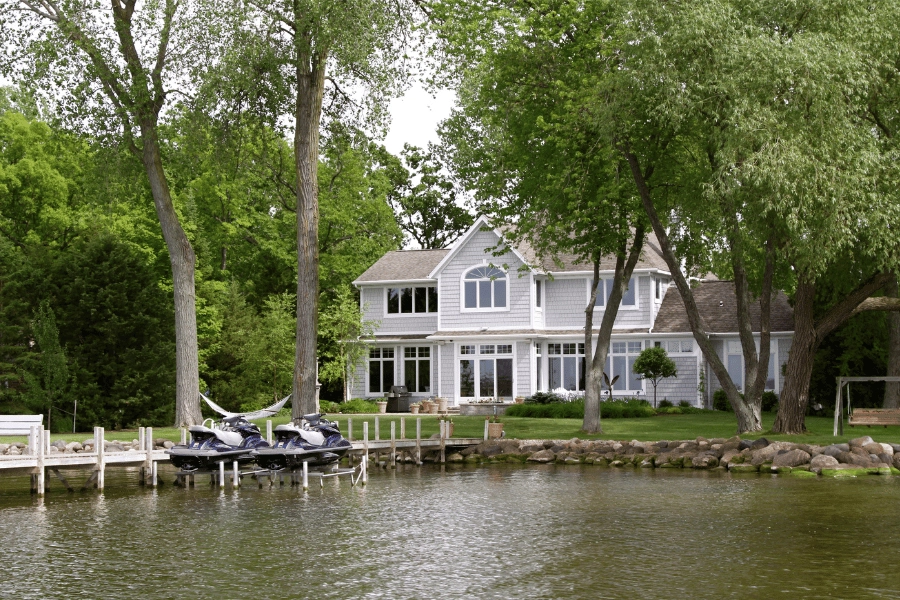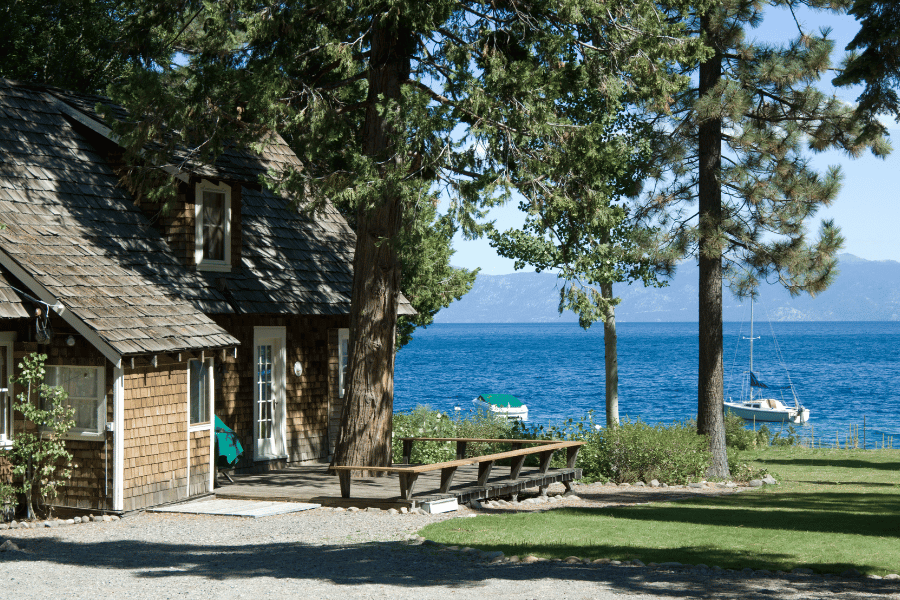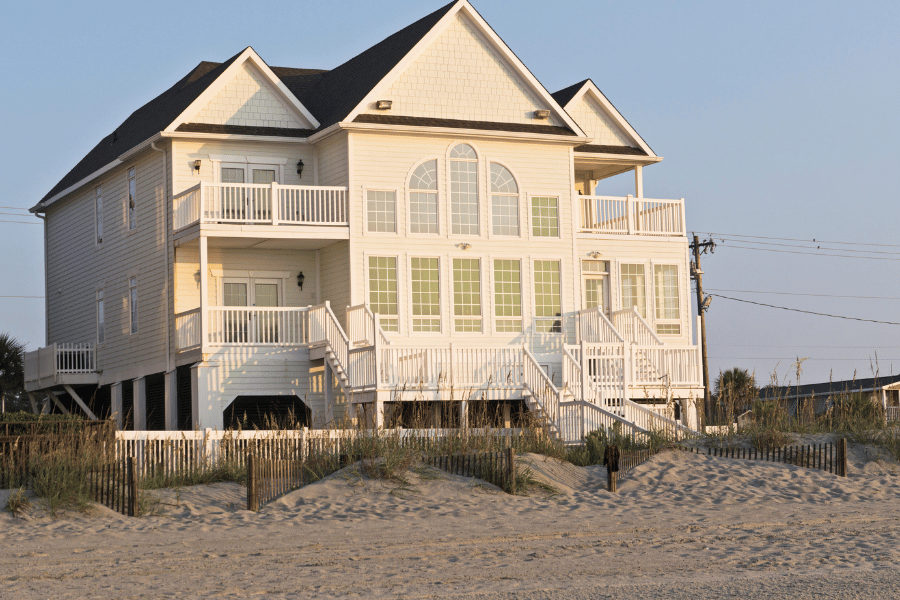Pros and Cons of Buying a Waterfront Home
Are you considering purchasing a waterfront home? Here are the top ten pros and cons to help you decide whether or not to buy a waterfront property.
If you have ever dreamed of enjoying your morning coffee while watching the sun rise over a glistening lake, you are not alone. Waterfront living represents the pinnacle of residential real estate for many homebuyers, offering an unmatched lifestyle that combines natural beauty with recreational convenience.
In the Raleigh area, where stunning lakes like Falls Lake, Jordan Lake, and numerous smaller waterways dot the landscape, waterfront properties offer Triangle residents a serene escape without sacrificing proximity to urban amenities.
Living by the water is a dream for many people who seek vacation homes. However, while the allure of waterfront living is undeniable, purchasing a home on the water requires careful consideration beyond what typical homebuyers face.
From unique insurance requirements to environmental considerations, waterfront properties come with their own set of challenges that can significantly impact your investment and daily life.
Whether you are relocating to Raleigh or are a resident looking to upgrade to lakefront living, understanding both the advantages and potential drawbacks of waterfront homeownership is essential to making an informed decision.
Let's dive into the ten most important factors to consider when contemplating a waterfront home purchase in the Raleigh area.
Here are the pros and cons of buying a waterfront home.
1. Pro: Breathtaking Views and Natural Beauty
The captivating views from a waterfront residence are often a key factor driving people's quest to purchase one. For many, the allure lies in having a retreat for vacations and getaways.
Waterfront homes offer ever-changing vistas that transform with the seasons, weather, and time of day. Whether it's the serene beauty of a lake, river, or ocean, any water view serves as a source of inspiration.
In the Raleigh area, you might enjoy watching morning mist rise from Falls Lake, observing wildlife along Jordan Lake's shores, or witnessing spectacular sunsets that paint the sky in vibrant hues reflected on the water's surface.
These views are not just aesthetically pleasing; they can positively impact your mood and overall well-being. Studies have shown that proximity to water can reduce stress levels and promote feelings of calm and tranquility.
Additionally, many Raleigh-area waterfront homes feature large windows and outdoor living spaces specifically designed to maximize these water views, essentially bringing the outdoors in and creating a seamless connection with nature.
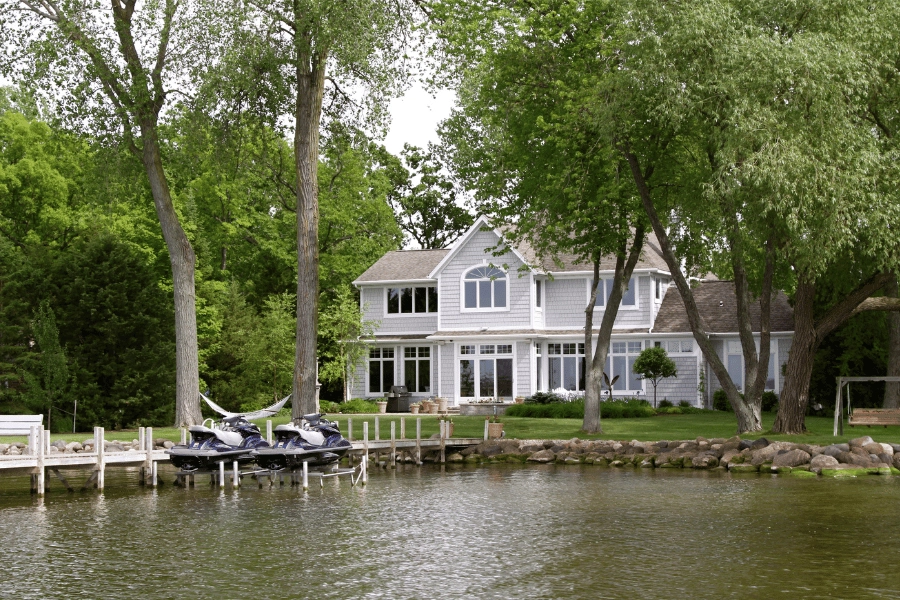
2. Pro: Unparalleled Recreational Opportunities
Not only does living on the waterfront delight the senses, but it also offers unrivaled opportunities for outdoor enthusiasts. The proximity to the water opens up a world of possibilities, making it easier to access various amenities compared to a typical suburban neighborhood.
Owning a waterfront home transforms your backyard into a personal recreation center. Depending on your property's location and the body of water, you can enjoy boating, kayaking, paddleboarding, fishing, swimming, and water skiing.
For families, this means endless entertainment options that encourage outdoor activity and reduce screen time. Waterfront living promotes a healthy and active lifestyle that can transform your home into a year-round vacation.
If you enjoy scenic trails for hiking by the lake, biking along the beach, or participating in various water sports, then living by the water is ideal for you. With easy access to countless opportunities, there is something to do every day.
Beyond personal use, waterfront homes become natural gathering places for friends and family, creating opportunities for memorable experiences and strengthening relationships through shared outdoor adventures.
3. Pro: Enhanced Relaxation and Stress Relief
There is a reason people flock to beaches and lakes for vacation. Water has an inherently calming effect on the human psyche. When you own a waterfront home, you gain access to this therapeutic environment every single day.
The concept of "blue space," which refers to the positive mental health effects of being near water, has been extensively researched and validated by scientists worldwide.
The rhythmic sounds of water create natural white noise that can improve sleep quality and reduce stress hormones. Many waterfront homeowners in the Raleigh area report that their property feels like a permanent vacation retreat, offering a sanctuary from the pressures of work and daily life.
Whether you are reading on your dock, practicing yoga with a water view, or simply sitting outside listening to the gentle lap of waves, your waterfront home provides built-in relaxation opportunities that landlocked properties simply cannot match.
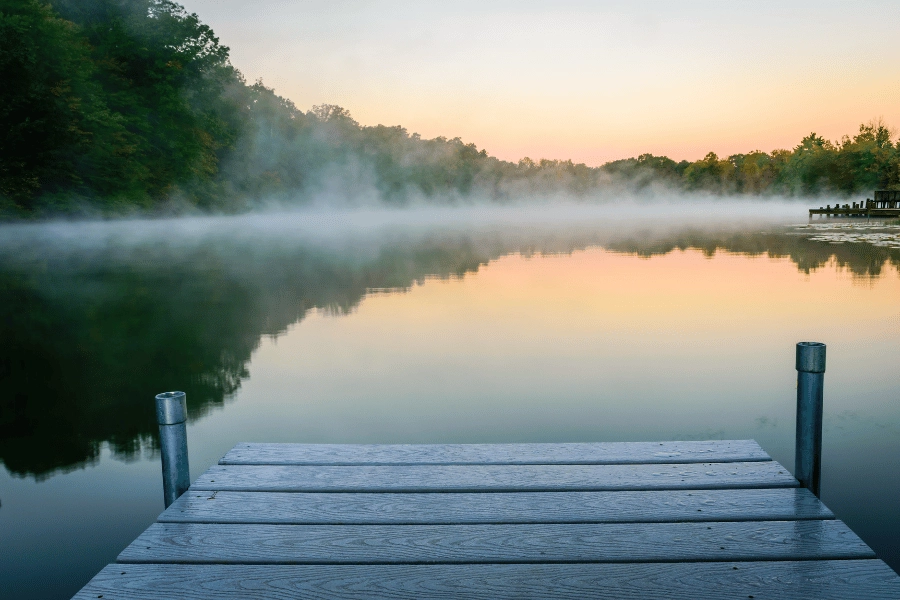
4. Pro: Greater Privacy and Seclusion
Waterfront properties often provide superior privacy compared to traditional residential lots. With water serving as a natural buffer on at least one side of your property, you will have fewer immediate neighbors and significantly more personal space.
Many waterfront homes are also situated on larger lots with natural vegetation that further enhances privacy, creating a secluded retreat that feels worlds away from suburban subdivisions. Without neighbors directly behind your home, you will enjoy quieter surroundings, fewer disturbances, and greater freedom to use your outdoor spaces without feeling observed.
For those who value tranquility and personal space, this aspect of waterfront living can be transformative. Additionally, the natural landscape surrounding many waterfront properties attracts wildlife, giving you front-row seats to observe herons, turtles, deer, and countless bird species in their natural habitat
In addition to the privacy you will experience, waterfront homes also offer unique amenities and benefits, such as access to gated areas, exclusive beaches, marinas, and many other things. These high-end services can enhance your quality of life by bringing luxury, peace, and quiet into your everyday life.
5. Pro: Strong Property Value and Investment Potential
Waterfront real estate historically maintains strong value and often appreciates more rapidly than comparable inland properties. The simple economics of supply and demand work in favor of waterfront homeowners since there is high demand for these unique properties.
In the Raleigh area, where the population continues to grow, and quality of life is highly valued, waterfront properties represent particularly sound investments. The combination of lifestyle appeal, limited inventory, and consistent demand makes waterfront real estate one of the most resilient property types in the market.
Purchasing a waterfront home can be a smart investment. Vacation properties near the water are usually in high demand for rentals, allowing you to earn extra income when you're not using the property. This creates a reliable return on your investment while you enjoy the benefits of waterfront living.
Additionally, with the popularity of short-term rentals on platforms like Airbnb and VRBO, owning a waterfront home can offer greater rental potential compared to properties without a water view. Focusing on location is crucial if you're looking to maximize your investment.
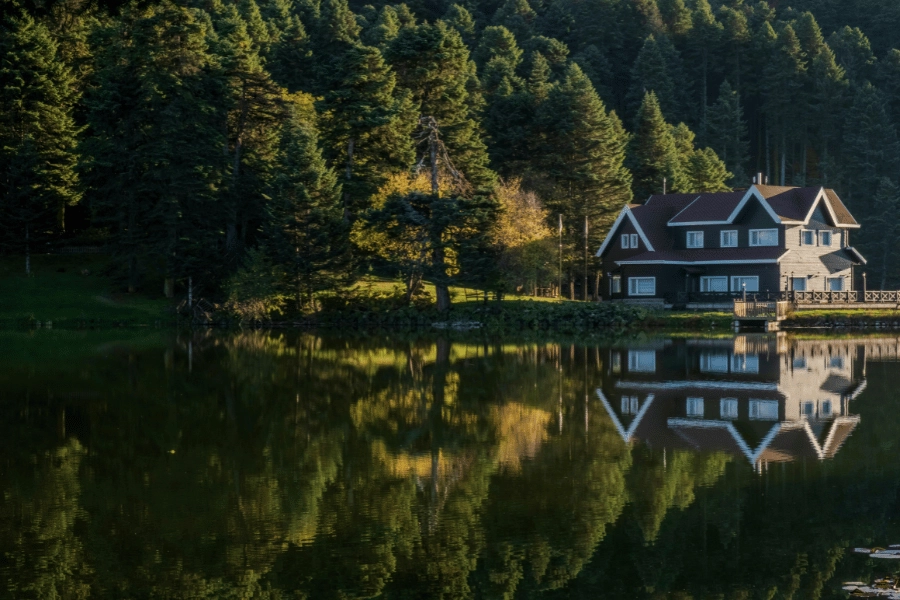
6. Con: Significantly Higher Purchase and Maintenance Costs
Owning a waterfront home has its benefits, but it also has negatives that you should consider. One of the main drawbacks people consider is the higher expenses associated with waterfront homes due to their location and amenities.
The premium for waterfront living is substantial and extends far beyond the initial purchase price. Waterfront homes typically command prices 30-50% higher than comparable non-waterfront properties in the same region, and in some prime locations, the premium can be even greater. This higher entry cost requires larger down payments and results in higher monthly mortgage payments.
Beyond the purchase price, maintenance costs for waterfront properties exceed those of traditional homes. The moisture-rich environment accelerates wear on building materials, requiring more frequent painting, sealing, and repairs.
Landscaping near the water often requires specialized plants that can tolerate moisture and may need erosion control measures. These ongoing costs can add thousands of dollars annually to your homeownership expenses, and it's crucial to budget accordingly when considering a waterfront purchase.
7. Con: Increased Weather and Environmental Risks
Living on the water means greater exposure to weather-related risks and environmental challenges. Waterfront properties face threats from flooding, erosion, storm damage, and, in some cases, hurricanes.
Erosion presents an ongoing concern for waterfront homeowners, as water action gradually wears away shorelines. Addressing erosion may require expensive interventions like riprap installation, retaining walls, or shoreline stabilization projects, which can cost tens of thousands of dollars.
Homes near water may experience more insect activity, including mosquitoes, during warmer months. Additionally, climate change considerations suggest that weather patterns may become more unpredictable, potentially increasing the frequency and severity of storm events.
These environmental factors do not make waterfront living impossible, but they do require proactive planning, regular property maintenance, and realistic expectations about the relationship between your home and its dynamic natural surroundings.
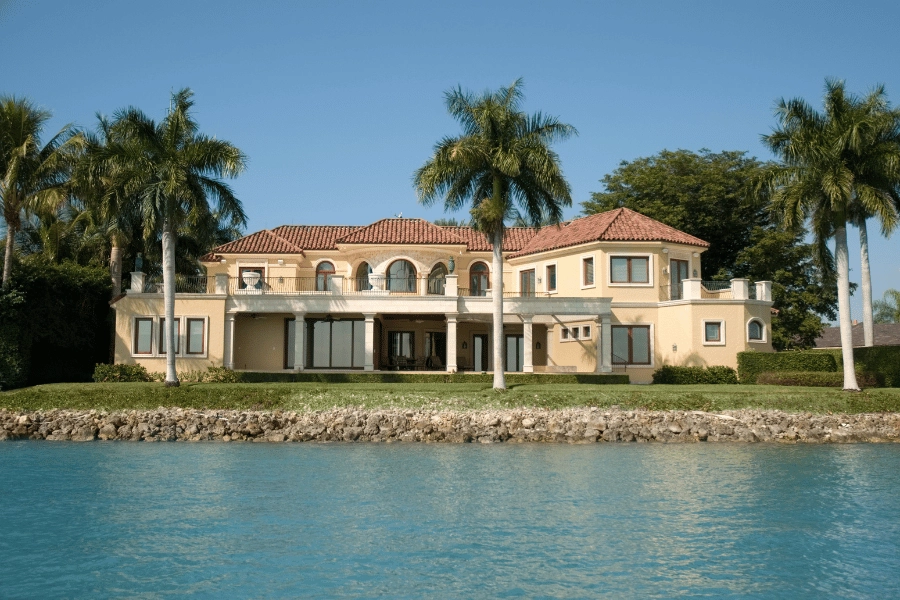
8. Con: Limited Inventory and Competitive Market
Finding the right waterfront property requires patience and often involves compromises. When a desirable waterfront home becomes available, it often receives multiple offers, sometimes above asking price, creating a competitive buying environment where you may need to act quickly and decisively.
This limited availability means you might need to expand your search radius, consider properties that need renovation, or wait extended periods for the right home to become available. The geographic constraints of waterfront living also mean you may have longer commutes to work or urban amenities compared to more centrally located properties.
This scarcity requires flexibility in your home search and the willingness to potentially compromise on certain features or location preferences to secure waterfront property.
9. Con: Complex Insurance Requirements and Higher Premiums
When it comes to waterfront properties, the cost of home insurance is typically higher compared to homes that are not near bodies of water. This is because insurance premiums are based on the level of risk, and water presents one of the biggest risks for homeowners with these properties.
Standard homeowners' insurance policies often exclude or limit coverage for flood damage, requiring separate flood insurance through the National Flood Insurance Program or private insurers. Depending on your property's flood zone designation, flood insurance can add $1,000-$3,000 or more annually to your insurance costs.
Beyond flood insurance, waterfront homes typically face higher premiums for standard homeowners insurance due to increased risks from wind, water damage, and the higher replacement costs associated with waterfront construction.
Before committing to a waterfront property purchase, you should obtain insurance quotes specific to that property to understand the true cost of ownership and ensure adequate coverage is available at a price you can afford.
10. Con: Regulatory Restrictions and Environmental Responsibilities
Most waterfront areas are subject to regulations protecting water quality, wetlands, and wildlife habitats. In North Carolina, projects affecting the shoreline, including dock construction, dredging, or substantial landscaping changes, typically require permits from multiple agencies, including the Army Corps of Engineers, the North Carolina Division of Coastal Management, and local authorities.
These regulations can limit what you can do with your property. There may be restrictions on removing vegetation near the water, requirements for setbacks from the shoreline, limitations on dock size and configuration, or prohibitions on certain activities during wildlife nesting seasons.
Violating these regulations can result in significant fines and required remediation that can cost tens of thousands of dollars. Additionally, as a waterfront property owner, you have an environmental responsibility to maintain your property in ways that don't negatively impact water quality.
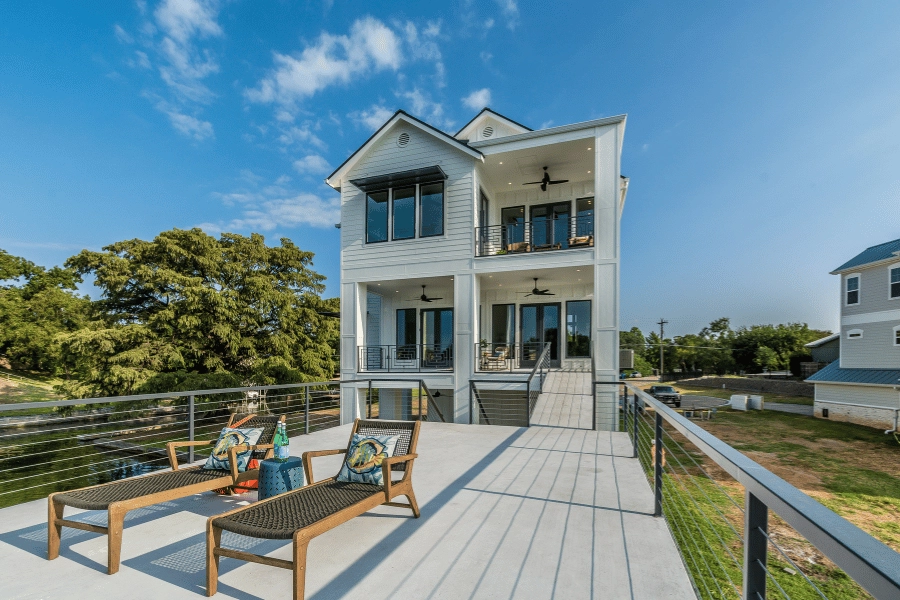
Methodology
Data was sourced from FEMA and Blue Zones to determine the pros and cons of waterfront living.
FAQs
What is the disadvantage of owning a lake house?
While lake houses offer serene beauty, they may attract insects like mosquitoes. Their remote locations can sometimes pose challenges in accessing amenities and healthcare. However, the charm of nature often makes these trade-offs worthwhile.
Do waterfront properties appreciate faster in the United States?
Thanks to their exceptional locations, waterfront homes typically retain and often increase in value more rapidly than non-waterfront properties.
Why are oceanfront properties so expensive?
Oceanfront properties are exclusive in waterfront living, making them more expensive than other properties. Unlike landlocked homes, waterfront properties are less common and harder to find, which increases their desirability.
Is living on the water worth it?
Living on the water can be ideal for some people, while not suitable for others. This lifestyle offers unique and attractive benefits, including scenic views, recreational opportunities, health advantages, and the potential for increased property value.
Pros and Cons of Buying a Waterfront Home - The Bottom Line
Purchasing a waterfront home represents a significant lifestyle choice that offers remarkable rewards along with unique responsibilities. The decision ultimately comes down to your personal priorities, financial capacity, and willingness to embrace both the joys and challenges of waterfront living.
For many buyers, the daily benefits of waterfront life far outweigh the additional costs and considerations. The premium you pay for a waterfront property is an investment in your quality of life and well-being.
Are you ready to move to Raleigh and explore waterfront living? Contact the experts at Raleigh Realty today. Let us help you turn your waterfront dreams into reality while ensuring you make an informed investment that enhances your lifestyle for years to come.
